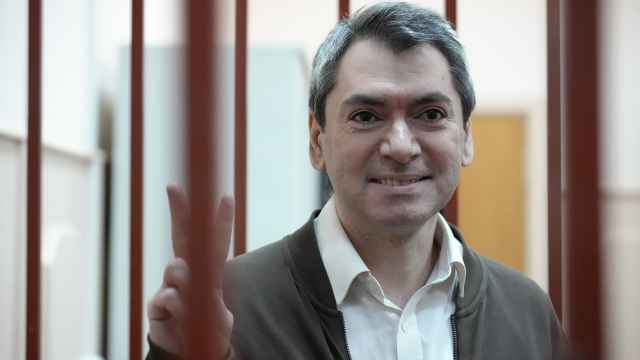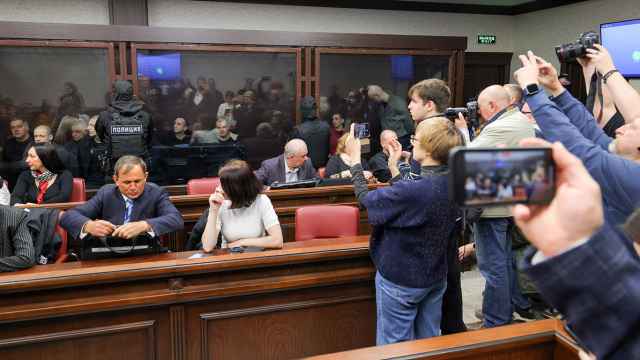Even foreigners with a strong knowledge of Russia and its intelligentsia rarely know the difference between a member of the intelligentsia and an intellectual — and, accordingly, why many Russians refuse to accept that seemingly honorable label.
When renowned Russian historian Lev Gumilev — the son of two stars of Russian poetry, Nikolai Gumilev and Anna Akhmatova — was asked whether he was a member of the intelligentsia and a democrat, he retorted: "No way! A democrat? I am an old soldier. My father was a solder and my grandfather was in the military, and so on back to the 19th century. We were soldiers, but we were educated people, at least starting with my grandfather. We studied. But that did not make us members of the intelligentsia. They are full of empty prattle."
Russian writer Leonid Andreyev went so far as to caricature the intelligentsia. "Cut off from the laboring masses, elevated to some boundless heights, overstuffed on the bread of the spirit to the point of indigestion … the intellectual decides global issues and the question of Russia's existence. They set such tasks for themselves, but fail in the effort."
There are good grounds for such sarcasm. The Russian intelligentsia has always been mercilessly critical of the authorities but very forgiving of their own shortcomings. Their record is not without its heroic exploits. The Russian intelligentsia is rightfully proud of the zemstvo episode in the 19th century, when thousands of the intelligentsia moved to remote provinces to "improve" Russia by building, healing and teaching.
However, there are also black marks on their shining example. The first mention of the "anatomical pathology" of the Russian intelligentsia appeared in 1909 when the "Vekhi" ("Milestones") anthology was published by such famous names as philosopher Nikolai Berdyayev, religious scholar and economist Sergei Bulgakov, philosopher Semyon Frank and others. The words "anatomical pathology" are key here because the authors, while not rejecting the positive or healthy role of intellectuals, demonstrated their typical negativity or "sickness" and showed just how dangerous they are for others.
After the 1917 October Revolution, many of the "Vekhi" authors were passengers on the famous "philosopher's steamship," exiled from Russia. True, they were not the intelligentsia, as many mistakenly write, but major Russian intellectuals whom the Bolsheviks had exiled for their "uselessness and harmful character." There is a huge difference between the intelligentsia and intellectuals. As a rule, the former group forms a belief in something, discards everything contrary to that idea as useless, and then — and this is the most dangerous — doggedly perseveres until they have brought that idea to fruition. Members of the latter group tend to have doubts about their convictions and, because they devote themselves to the search for truth until the very end of their lives, are not inclined toward radicalism.
Almost 100 years later, Alexander Solzhenitsyn reached the same conclusions as the authors of "Vekhi." He wrote the following concerning the Russian intelligentsia: "They have no sympathetic interest in the country's history, no sense of blood relationship to it and too little sense of the historical reality. In their view, all evil stems from external problems, and therefore they feel that only external reforms are necessary. The intelligentsia considers the authorities responsible for everything that happens, thus freeing them from any personal responsibility or personal guilt. They have an exaggerated sense of their own rights. They are pretentious, posturing and hypocritical. … They haughtily contrast themselves with the 'simple people.' They are spiritually arrogant."
Then history repeated itself. Once again, from the fertile soil of the intelligentsia grew dissent and internal opposition to the Communist Party that in turn gave rise to perestroika. The intelligentsia once again came close to achieving liberty, but, unfit for practical work, again retreated, giving way to leaders of questionable character. The difference was that this time maximalist free-market advocates came to power, liberals with the character of Bolsheviks. And just as expected, reaction followed the era of maximalism.
And today's opposition claims, using Solzhenitsyn's words, that "all evil stems from external problems," and that is why they are fixated with the idea of removing President Vladimir Putin from power. And what would follow that? No doubt the usual euphoria of victory, soon followed by another attack of maximalism. Again the people will find it impossible to understand the intelligentsia, just as the intelligentsia is unwilling to understand the people. The result: yet another standard reaction and the subsequent bout of depression.
If somebody claims that the Russian intelligentsia is a dying breed, do not believe them. As before, there are more than enough of those die-hard maximalists. What are lacking are intellectuals.
Pyotr Romanov is a journalist and historian.
A Message from The Moscow Times:
Dear readers,
We are facing unprecedented challenges. Russia's Prosecutor General's Office has designated The Moscow Times as an "undesirable" organization, criminalizing our work and putting our staff at risk of prosecution. This follows our earlier unjust labeling as a "foreign agent."
These actions are direct attempts to silence independent journalism in Russia. The authorities claim our work "discredits the decisions of the Russian leadership." We see things differently: we strive to provide accurate, unbiased reporting on Russia.
We, the journalists of The Moscow Times, refuse to be silenced. But to continue our work, we need your help.
Your support, no matter how small, makes a world of difference. If you can, please support us monthly starting from just $2. It's quick to set up, and every contribution makes a significant impact.
By supporting The Moscow Times, you're defending open, independent journalism in the face of repression. Thank you for standing with us.
Remind me later.






